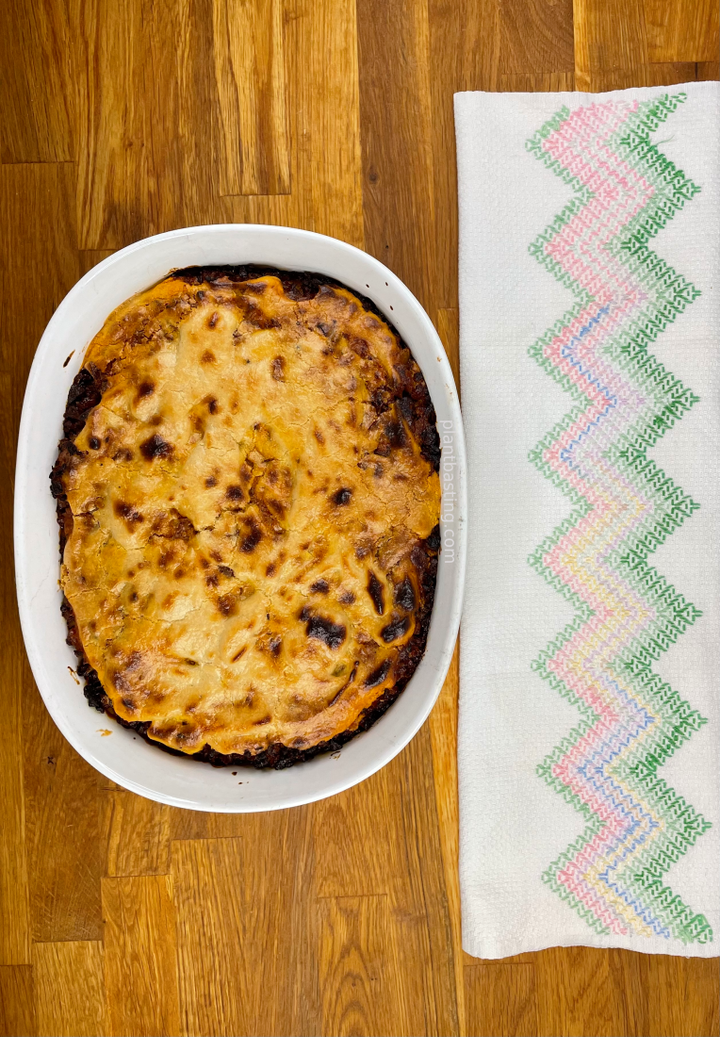#7 : Kensington Community Food Co-op's Journey to Becoming a Conduit for Neighborhood Health
Welcome to "Season 2" of Plant Basting Talks, where we interview entrepreneurs in the vegan-friendly space about their story, what they’ve learned thus far, their business model, and how they measure their business's health. Learn the trends and strategies local businesses are using to grow.
In this week's interview with KCFC's General Manager, Lauren Lyons, read:
- About the co-op's evolution from a few early member-owners' ideas for improving their community, to its current state as a significant community space and resource.
- What KCFC's core principles are and how those influence their end goals as a business.
- The unique challenges the store faces as a co-op from other grocery stores.
- How KCFC has adapted under the circumstances of unsually steep price increases and supply chain issues.
1. What influenced the founding members to start KCFC?
Here is a quote from a current Board Member and one of the first 100 member-owners, Holly Logan.
“Around 2009, my partner and I moved to Kensington and we were looking for ways to get involved in our community and meet more neighbors. In 2010, we joined Kensington Community Food Co-op as member household #67 (I still smile every time I'm at the KCFC register and the cashier is wow'd by how small our number is). Initially, I didn't know much about cooperative economics; it was more about community for me and my partner. As I became more involved with KCFC and understood the power behind investing in a cooperative instead of just relying on capitalism, I appreciated the collective nature of a community pooling resources together to own a business to serve the community. I volunteered on committees, helped get our Buyer's Club started, then I got elected to the Board.”
2. What were the critical steps you took to open the co-op?
An idea for the co-op started developing around 2009. It’s been a very long process of rallying the neighborhood for members, formally renting our current building and parking lot, taking out loans, and lots of construction (the co-op used to be an old abandoned bar and was completely trashed inside.)
A couple of our Board Members and member-owners have been involved since the beginning. They were motivated to invest in a cooperative instead of relying on the city or a chain business to fill an empty lot. They wanted to create jobs for neighborhood residents and to establish a community-oriented space. The co-op became a collective community of everyone pooling resources together to own a business that provided food (especially healthful, high quality food) to the area. We’ve had Board Members and many people involved with the co-op years before the doors opened in April 2019.
3. How did you get your first members/customers?
Neighborhood events, fundraising, equity lenders, volunteers encouraging membership sign ups and community engagement.
4. How have you continued to grow KCFC’s customer base? Is there a difference between growing members vs. non-members?
We currently have over 1,500 members! We don’t require membership to shop at KCFC, so our job as KCFC employees is to inform shoppers about the benefits of membership which can be found on our website (our Co-op Ca$h household debit account, Shop Local discounts, and the importance of investing in a community business.) Financially, members spend an average of 60% more at the co-op than non-members. Ideally, becoming a member shows commitment
and support to continue growing our small community owned business, and growing our neighborhood involvement.
In general, we serve more non-members than members, however members tend to spend more of their money at the co-op, keeping their dollars in their neighborhood.
5. What is KCFC’s business model?
The cooperative model has been around for a long time (in Philadelphia, it dates back to 1752.) The International Co-op Alliance defines co-ops as “enterprises owned and run by and for their members. They bring people together in a democratic and equal way with a ‘one member, one vote’ rule. The economic and social benefits of their activity stay in the communities where they are established.”
KCFC operates on a shared set of seven cooperative principles:
-Voluntary and open membership
-Democratic member control
-Member economic participation
-Autonomy and independence
-Education, training, and information
-Cooperation among cooperatives
-Concern for community
You can learn more about cooperative values here.
KCFC is committed to sustaining a thriving, healthy community, a vibrant cooperative economy, an active and engaged membership and a community educated in social, economic and food justice. The biggest difference between us and your average grocery store is that we don’t have a single owner, so no one person is the beneficiary of our business. Our goal is not to make the biggest profit, but be able to exist and serve our members and community as a whole.
6. What are the most important metrics that KCFC tracks for knowing the health of the business?
-Gross revenue
-Expenses
-Cash in bank
-Transactions
-Basket size
7. How do you decide on pricing of your products? Have rising prices or shortages of supplies affected KCFC?
KCFC purchases directly from as many distributors as we can. This helps keep pricing as low as possible, yet fair to the business-owner. We currently carry over 500 products produced within a 100 mile radius of Philadelphia and actively invest in queer, woman, and BIPOC led/owned companies.
As a co-op we are already at the disadvantage of not having big box store buying power. We’re a very small business. When we buy products for our store, it’s one box at a time. This is a stark contrast to bigger stores that buy hundreds and thousands of a single product at a greatly reduced cost. More recently supply chain issues have caused shortages, long term out of stocks, discontinuing of many best sellers and drastic price increases at our co-op (and the grocery industry in general.) The degree to which we have experienced price increases on products across the board is like nothing we’ve ever seen. Generally, prices fluctuate in cents, so a few cents here or there. The recent inflation has caused previously reasonable products to increase by dollars, sometimes several dollars at a time. Many producers are opting to reduce the size of their product rather than increase the price. Take a look at your favorites next time and see if they’ve “rebranded” lately. In all likelihood they’ve shrunk the ounces in the package.
Our buyers have swapped products in order to guarantee stock or preferred pricing where and when we can. We continue working hard to ensure a steady and robust supply, and have asked that our patrons bear with us as we adapt to our challenged supply chain.
8. Is it important to KCFC to be vegan-friendly?
It is definitely important for KCFC to provide vegan-friendly options, especially since the co-op was built in a food desert - many surrounding stores do not offer vegan options. (This is also significant because many people have dietary needs.) KCFC values vegan options because we are on a journey to become as environmentally sustainable as possible. Vegan food options help prevent deforestation, soil degradation, and greenhouse gas emissions associated with animal production and with climate change.
9. What are the biggest challenges faced and obstacles overcome by KCFC?
One of our biggest challenges is trying to spread awareness on the importance of choosing a grocery cooperative as your main grocer. Many people, understandably, want to purchase the cheapest food option and we’re often questioned as to why our food is more expensive than big grocery. Although some organic or other specialty foods can be inherently more expensive, many of our products are comparably priced. Co-ops prioritize environmental sustainability, locally sourced products, fair trade, and equitable living wages. Therefore, we can’t always offer the lowest price compared to large chain stores that tend to be destructive to local and global communities. We also don’t buy products in mass quantities compared to chain stores placing huge orders. However, the more people that shop at the co-op, the more bulk we can buy resulting in lower prices!
10. Has there been anything (resource, book, skill, habit, or bit of knowledge) that’s been valuable or useful on the journey of opening and operating KCFC?
Throughout the journey of our co-op, we have pooled our resources and networked with members of our community with knowledge ranging from: financial planning, community presence/engagement, fundraising, grant writing, marketing, business development, real estate, law, education, etc.
Grocery Story: The Promise of Food Co-ops In The Age of Grocery Giants by Jon Steinman is a great book about the significance of cooperatives.
11. Any advice for entrepreneurs just starting out in the vegan-friendly space?
Continue to promote how beneficial it can be to implement more plant-based foods into your diet. Most people want to feel healthy, happy, and energized. We want to eat fresh, seasonal food with flavor and color. Most of us are just used to eating a particular way and haven’t been able to fully grasp the benefits of a vegan-friendly space. Plus, when you support plant based foods, you’re also supporting food justice, environmental justice, animal justice, and human justice—they all intertwine and can inspire us to make positive change.
12. Where can we go to learn more about KCFC?
Come to our co-op and see for yourself! KCFC may be smaller than a standard grocer, but we have numerous departments such as: produce, meat/meatless alternatives, bakery, bulk section, refrigerated dairy and non-dairy products, frozen foods, wine & beer, and wellness.
We also pride ourselves on the knowledge and friendliness of our employees; feel free to strike up a conversation with any of us to learn more about the co-op!
Interested in learning how to start a vegan-friendly business like Kensington Community Food Cooperative?
Sign up below to get an interview in your inbox every week!


